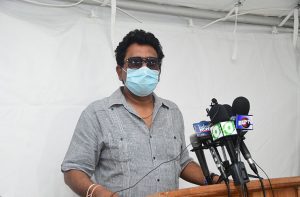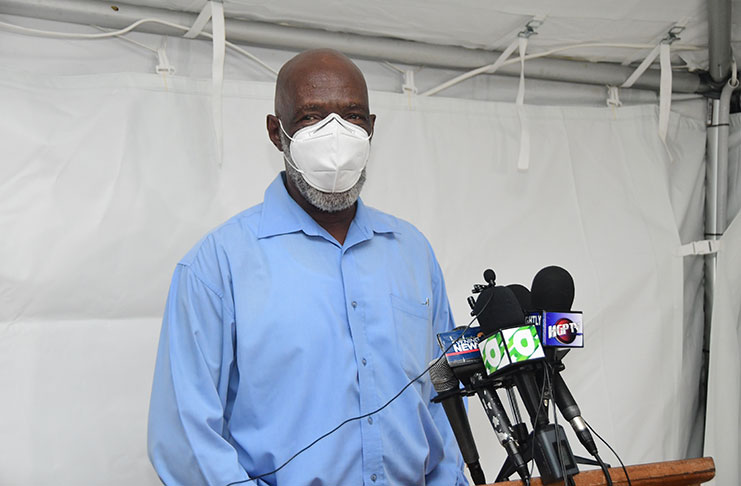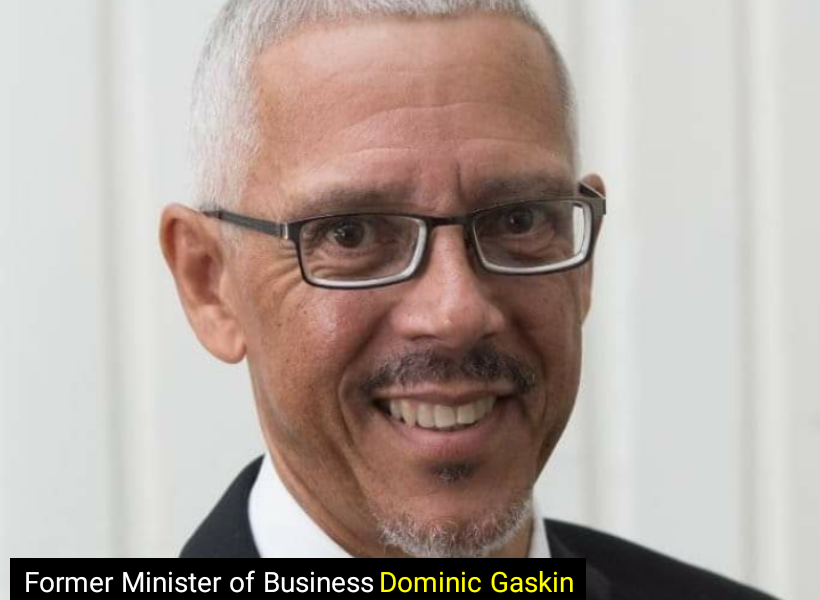Commissioner Vincent Alexander
May 29 2020
…seeks immigration records of persons listed as voted
…PPP/C objects, threatens court action if Commission proceeds
IN an effort to confirm or negate allegations that Guyanese who were out of the jurisdiction during the conduct of the March 2,2020 General and Regional Elections are marked as voted, the Guyana Elections Commission (GECOM) has requested immigration records from the Department of Citizenship and Immigration Support Services, a move that could see the People’s Progressive Party/Civic (PPP/C) turning to the courts to stop the investigation from going ahead.
The A Partnership for National Unity + Alliance For Change (APNU+AFC) is contending that 1,261 persons voted in the place of migrants, and according to Elections Commissioner Vincent Alexander, a list of names has been provided to GECOM, and immigration records are now being sought, in accordance with the National Registration Act.
“Those [names] have been sent to the Chief Immigration Officer for verification,” Alexander told reporters at the Arthur Chung Conference Centre, where the National Recount of the votes cast at the General and Regional Elections is being done.

While the PPP/C has been objecting to the decision of the Elections Commission to accept evidence or information from the APNU+AFC, and or source death and immigration records, based on allegations made to date, Alexander made it clear that the request for immigration records by GECOM is provided for in the law.
“Like I said on a previous occasion, the Chief Immigration Officer, under Regulation 40 of the National Registration Act, has an obligation to periodically provide that information to the Chief Registration Officer, who is also the Chief Elections Officer. So I think within that context, the Chief Registration Officer has requested information from the Chief Immigration Officer,” Commissioner Alexander explained.
But PPP/C Executive, Anil Nandlall, in a separate interview told reporters that it would be illegal for GECOM to investigate the allegations being made by the APNU+AFC. “It is very clear that the Commission doesn’t have that mandate and that power, and it is not structured to receive evidence and those sorts of things; it is an elections Commission,” Nandlall told reporters.
He hinted at possible legal actions by the PPP/C if the GECOM moves to investigate the close to 2,000 claims of irregularities cited by the ruling Coalition. “Any time the Commission acts outside of its legal powers, the Court will be there to correct it,” Nandlall told reporters.
NOTHING TO HIDE
He added: “The PPP has nothing to hide, but the PPP will not participate in an illegal exercise. If GECOM goes down a road that GECOM has no power to travel, and wants to perform functions that GECOM has no lawful right and power to perform, then the PPP will not participate in that process.”
According to the APNU+AFC, some 1,937 numerical irregularities have been unearthed, thereby affecting 90,707 votes. The cases of alleged irregularities and electoral fraud are being included in the Observation Reports that are being provided to the Elections Commission. While this process is in keeping with the Order gazetted by the Chairman of GECOM, Justice (Ret’d) Claudette Singh on May 4, Nandlall believes that the Observation Reports are irrelevant to the process. Notwithstanding its inclusion in the Order, Nandlall believes that it is of little value to the Elections Commission.
“What you think the Observation Report is? It is a summary of the objections; the position is that GECOM cannot do anything with it. GECOM cannot do anything with it in law,” Nandlall submitted, while contending that the claims in the Observation Report cannot be investigated by the Elections Commission. GECOM, he said, should, upon the completion of the recount, proceed to declare the results of the General and Regional Elections, based on the report compiled by Chief Elections Officer Keith Lowenfield.
Nandlall submitted that the Court, under Article 163 of the Constitution, has exclusive jurisdiction to treat with cases of alleged electoral fraud. However, Commissioner Alexander sought to remind that the National Recount is being done under Article 162 of the Constitution, and Section 22 of the Elections Law (Amendment) Act, and not the Representation of the People Act.
“The Representation of the People Act did not allow for this recount that we are doing; it is the said Constitution, by virtue of Article 162, so that the determination of these matters in a common-law system is only final if a Court decides,” Commissioner Alexander said. “The view that we held by virtue of what’s in that Order, an Order which was agreed to by the Commission is that we are not doing a mere numerical recount; that we in fact going to have observation beyond the numbers, and we are having observations beyond the numbers,” he explained.



